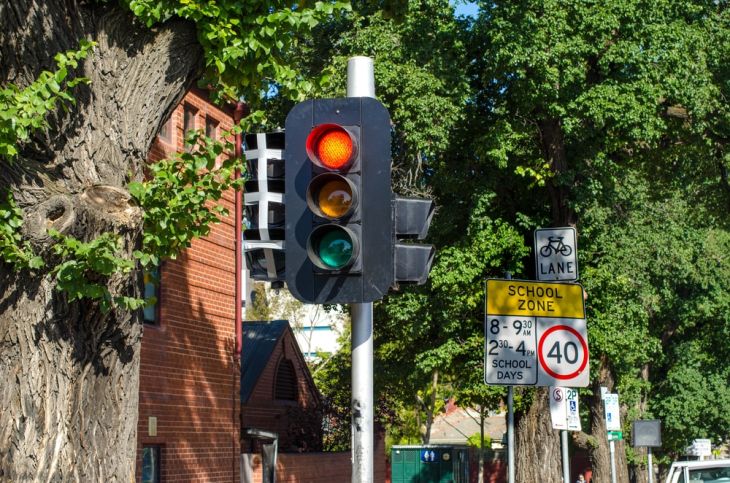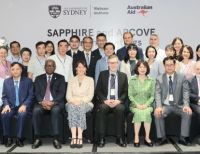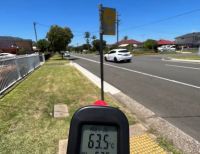Self-driving robotic vehicles are communicating with traffic lights on the streets of Sydney, as part of an intelligent transport trial led by the University of Sydney and Transport for NSW that positions the state as a global leader in road safety innovation.
The vehicle-to-infrastructure technology under development aims to save lives by feeding data about pedestrians, cyclists, other motorists and traffic light signal changes to driverless vehicles, as well as manually operated vehicles.
Two self-driving vehicles will drive in live traffic on the streets of Chippendale using wireless connectivity to interact with traffic lights equipped with Transport for NSW’s Sydney Coordinated Adaptive Traffic System (SCATS).
As the automated vehicles approach the traffic lights, the software under development - Cit-e - sends messages about the intersection’s layout, right of way, timing of signal changes and warnings of imminent hazards including vulnerable road users.
The self-driving vehicles used in the live traffic trial are designed by researchers in the Australian Centre for Robotics in the Faculty of Engineering and have undergone rigorous safety testing at Transport’s Future Mobility Testing and Research Centre in Cudal.
A receiver in the vehicle uses the information in conjunction with the vehicle’s position, direction and velocity to gauge whether it is likely to commit a red-light violation or endanger other road users.
Dr Stewart Worrall, senior researcher in the Australian Centre for Robotics said: “It’s great to have something here in Sydney, which we can test under Australian conditions.”
“This technology isn’t just about autonomy, it’s also about developing advanced driver assistance systems that can help drivers make better, safer decisions on the road.”
The Cit-e software could be launched commercially as early as next year by SCATS, and can be retrofitted to standard vehicles and traffic infrastructure meaning it could be in use long before the arrival of driverless vehicles.
Minister for Roads, John Graham said: “As cars get smarter, there’s the opportunity to make them safer and save lives on NSW roads. This innovative technology will put NSW at the forefront of the national conversation on smart car innovation and road safety.”
Secretary of Transport for NSW, Josh Murray said: “This is a joint project with the University of Sydney and iMove to future-proof our traffic network and prepare our roads for an automated driving future.
“These new trials help us understand the challenges and demonstrate the feasibility of introducing emerging technology so we’re able to channel it in our day-to-day running of the network.”
The trial was showcased at the Intelligent Transport Systems Summit in Sydney, with delegates from around the world experiencing the integrated solution on the Chippendale circuit which is a collaboration between Transport, iMOVE Cooperative Research Centre and the University of Sydney.
















